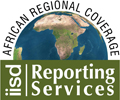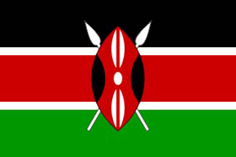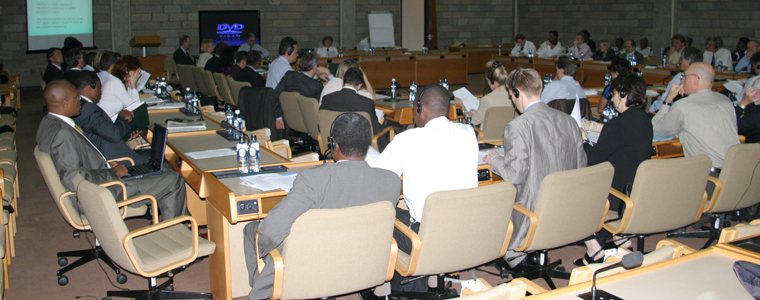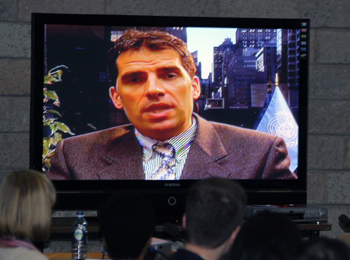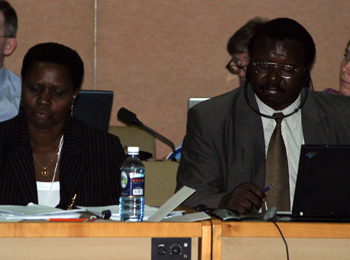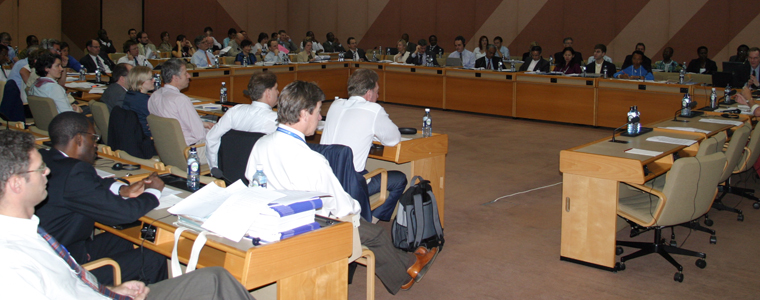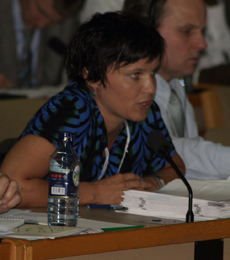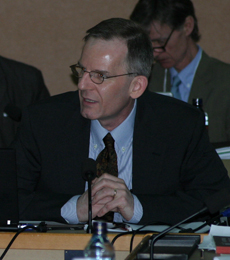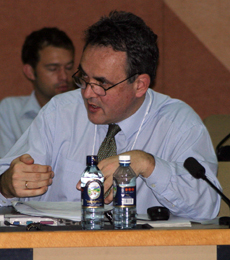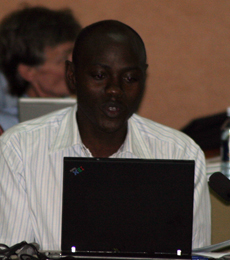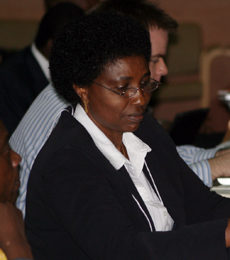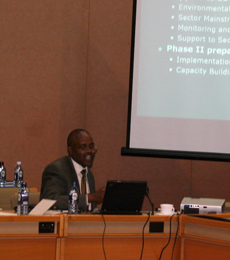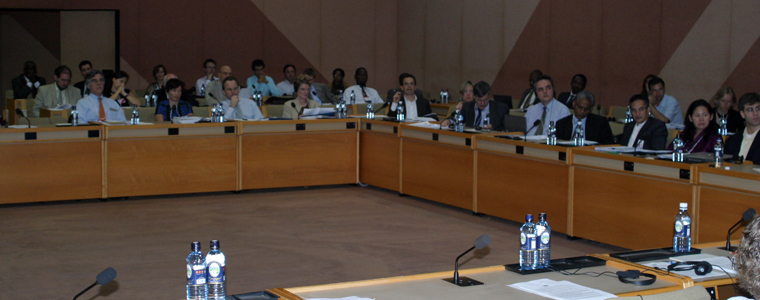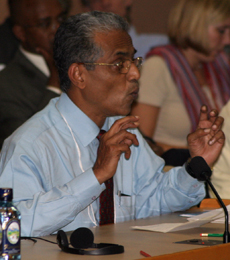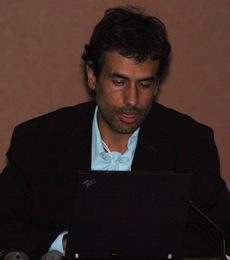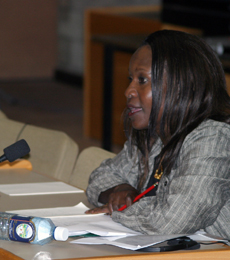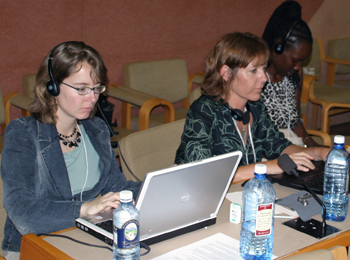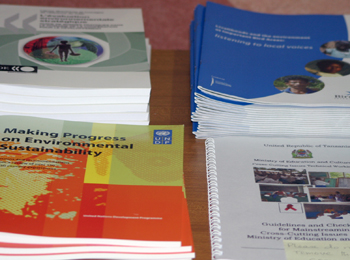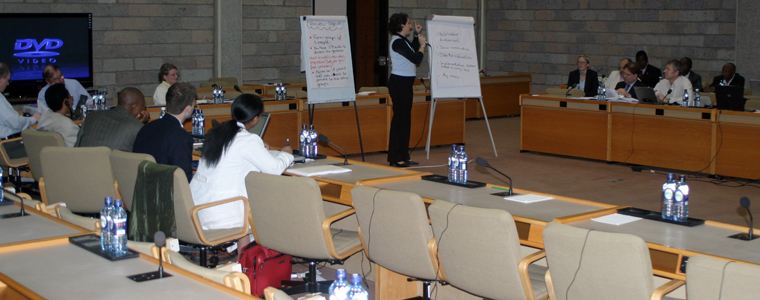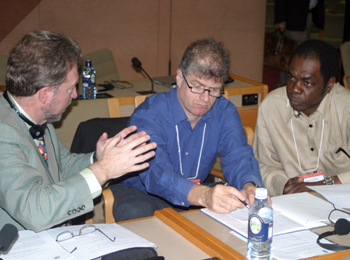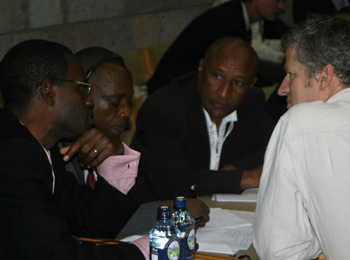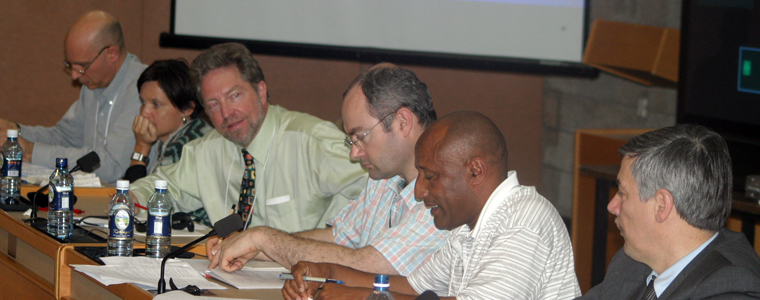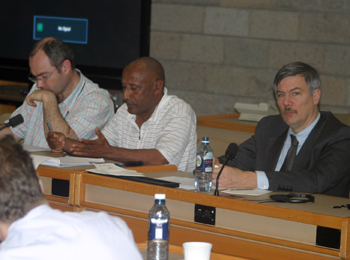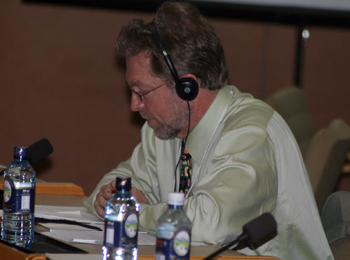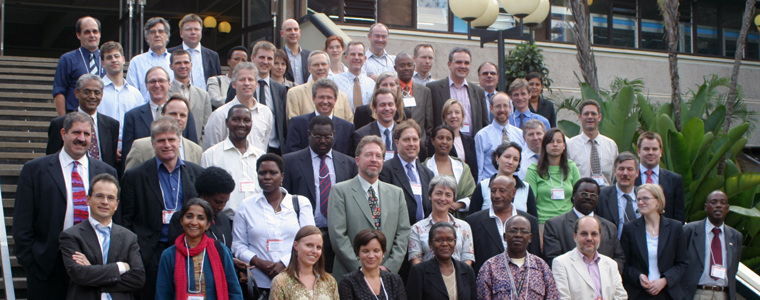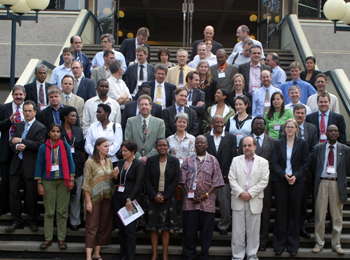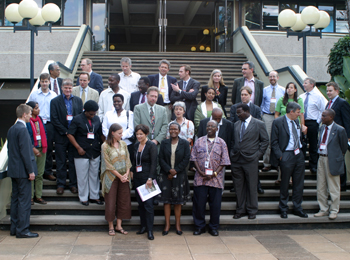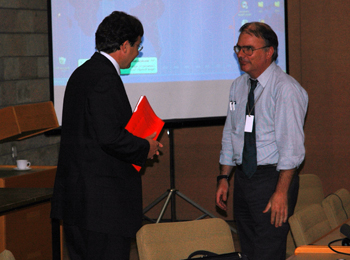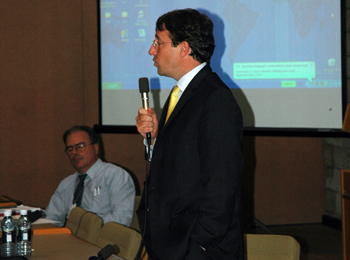 |
10th Poverty Environment Partnership Meeting
30 January - 1 February 2007 | Nairobi, Kenya |
 |
|||
|
|||||||||||||||||||||||||||||||||||||||||||||||||||
The Poverty Environment Partnership's 10th meeting (PEP-10) was held in UN headquarters in Nairobi, Kenya from 30 January to 01 February 2007. The overall theme for the proceedings was "Country experiences in mainstreaming environment into national development processes."
PEP-10 opened on Tuesday 30 January 2007, with approximately ninety participants in attendance, including representatives from developing country governments, donor organizations, and international and national NGOs and research institutes. In the morning, participants heard welcoming addresses by Peter Hazlewood, UNDP, and David Smith, UNEP, who outlined the agenda and objectives of the meeting. In a video message, Olav Kjørven, Director, UNDP Environment and Energy Group, highlighted increasing cooperation between UNDP and UNEP in line with the UN system-wide transformation.
Participants heard presentations on mainstreaming environment into national development processes from: Ruzika Muheto, National Environment Management Council (NEMC), Tanzania; John Nyangena, Ministry of Planning and National Development (MPND), Kenya, and Alex Forbes, UNDP; and Alex Mulisa, Rwanda Environment Management Authority (REMA). These presentations highlighted the successes and challenges of environment mainstreaming in national and subnational policy processes. In ensuing discussions, participants praised the levels of progress demonstrated by the country-level experiences and debated issues including how to encourage cross-sectoral policy involvement, the importance of inclusion of poor peoples’ perspectives and the limited involvement of the private sector in environmental mainstreaming.
In the afternoon, a panel discussion was held, with presentations on poverty environment mainstreaming experiences from India, Chile and Kenya by members of the Regional and International Networking Group (RING) and reflections on the day’s discussions. In the evening, participants attended a reception hosted by UNEP.
On Wednesday morning, in a session chaired by Anne Marie Sloth Carlsen (
Participants heard presentations on: environment for the MDGs - scaling up the UNDP-UNEP PEI, by Peter Hazlewood, UNDP, and David Smith, UNEP; a “user guide” on poverty environment (PE) mainstreaming approaches and tools and the role of local organizations, by Steve Bass, IIED; and poverty reduction and water management, by Joakim Harlin, UNDP, and John Soussan, Stockholm Environment Institute.
In the afternoon, during a session chaired by Jan Bojo, World Bank, presentations were held on: budget support and implications for development, by Gareth Martin, DFID; and environmental integration into programme-based approaches, by Ian Myles, CIDA, Canada.
A panel discussion was held on donor harmonization on PE issues in
Following the panel presentations, participants discussed: challenges in ensuring donor assistance reflecting specific country needs; continued focus on country systems; and the vital role of the PEP to ensure continued collective action on issues such as country experiences in PE mainstreaming. Discussions continued in breakout groups.
On Thursday morning, Olof Drakenberg, SIDA, summarized the previous day's sessions and participants heard feedback from break out group sessions on local-level implementation, donor harmonization, and connecting with ministries of finance.
A number of meetings and processes were announced; Jan Bojo, World Bank, presented on the African Conference on Growth, Poverty, Environment to be held in September 2007; Harald Lossack, German Technical Cooperation (GTZ), provided an update on an upcoming international conference on Environmental Fiscal Reforms; Piet Klop, Dutch Ministry of Foreign Affairs, outlined activities under umbrella of the Organization for Economic Cooperation and Development, Development Cooperation Directorate initiative ENVIRONET. Paul Steele, UNDP, updated participants on the ADB-hosted PEP website; Dan Tunstall, World Resources Institute, overviewed the mapping of poverty and ecosystems experiences in
In a closing session, developing country representatives and members of the RING alliance had an opportunity to provide feedback on the utility of the PEP and PEP-10 in particular. Numerous contributions underscored the informative value of the meeting, urged action to match the theory, and increased and deeper participation by developing country governments.
Joining the meeting for a closing reflection, Achim Steiner, UNEP Executive Director, stressed the centrality of the PEP’s work to UNEP activities.
Before returning to their discussions on donor harmonization, PEP-10 participants enjoyed a brief moment of sunshine while posing for their group photo at UNEP Headquarters in Gigiri.
|
Relevant Links
|
|||
|
|
|
|
|
|
Any irregularities on this page? Please mail the Digital Editor
| Back to IISD RS African Regional Coverage home page | Back to IISD RS "Linkages" home | Visit IISDnet | Send e-mail to ENB | © 2007, IISD. All rights reserved. |
||


